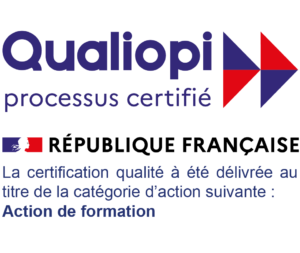
SARL capital 5000 € – SIRET 808 422 174 00033
Registered as a training provider
under the number 25 14 02886 14
(this registration is not equivalent to state approval).
Holder of a certificate of compliance :
Mailing address
30, Avenue du 6 juin
14000 CAEN
- +33 (7) 65 29 27 19
Newsletter subscription






